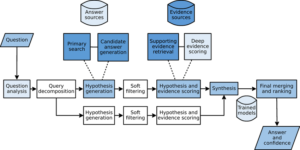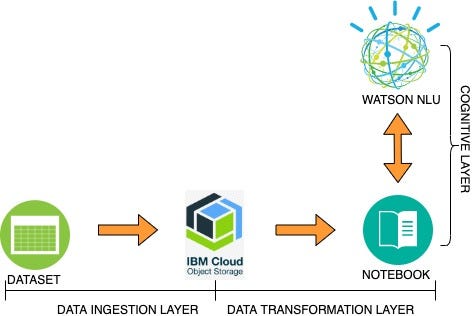IBM Watson NLP

The IBM Watson Natural Language Processing (NLP): Transforming Text into Insights:
Introduction:
IBM Watson NLP: In an age of big data, businesses face the challenge of making sense of the massive amounts of unstructured text they generate daily. Whether it’s customer feedback, social media posts, research papers, or legal documents, this data often contains critical insights that can inform decision-making. To address this need, IBM Watson has emerged as a leader in Artificial Intelligence (AI) and Natural Language Processing (NLP) solutions, empowering organizations to extract valuable insights from text data efficiently and accurately.
IBM Watson Natural Language Processing (NLP) provides a comprehensive suite of tools that leverage machine learning and AI to understand, analyze, and interpret human language. This article explores the key features, capabilities, and use cases of IBM Watson NLP, showcasing how it is helping businesses unlock the potential of their unstructured data.
What is IBM Watson?
IBM Watson is IBM’s AI platform that combines advanced natural language processing, machine learning, and deep learning technologies to deliver insights from data. Launched in 2011, Watson gained fame for winning the quiz show Jeopardy! against human champions, demonstrating its powerful language understanding capabilities. Today, Watson offers a range of AI services for industries like healthcare, finance, customer service, and more.
Watson’s NLP capabilities enable businesses to process text data in a way that mimics human understanding. By using Watson NLP, organizations can analyze the meaning, sentiment, and context of text, helping them automate decision-making, enhance customer experiences, and improve operational efficiencies.
Key Features of IBM Watson NLP:
- Entity Recognition:
Watson NLP includes powerful Named Entity Recognition (NER) capabilities, allowing it to identify important entities such as people, places, dates, organizations, and more from text. By recognizing and extracting these entities, Watson helps businesses gain a clearer understanding of the key subjects and topics mentioned in large datasets, such as legal contracts, news articles, or customer reviews. - Sentiment Analysis:
Watson NLP offers sentiment analysis, which identifies the emotional tone behind the words in a text. - Syntax and Grammar Parsing:
Watson NLP provides detailed syntax analysis, including part-of-speech (POS) tagging, dependency parsing, and lemmatization. This enables users to understand the grammatical structure of sentences, identifying relationships between words, subjects, and objects. Such insights are critical in building advanced language models for applications like question answering, text summarization, and machine translation. - Emotion Detection:
One of Watson’s unique features is its ability to perform emotion detection within text. - Keyword Extraction and Concept Tagging:
Watson NLP can automatically extract keywords and identify concepts from text. - Language Translation:
IBM Watson offers machine translation services, allowing businesses to translate text between multiple languages. Using its NLP engine, Watson can translate web content, documents, or customer communication into different languages with a high degree of accuracy. This feature helps global organizations manage multilingual data, reach international audiences, and provide localized customer support. - Customizable Models:
Watson NLP allows businesses to create custom models tailored to their specific domain or industry. This includes training Watson on industry-specific jargon, terms, and patterns to enhance its performance in specialized applications. - Text Classification:
Watson NLP can classify text into predefined categories or classes, making it easier to organize large volumes of unstructured text. This is useful for automatically sorting emails, documents, or customer support tickets based on topics, urgency, or other criteria.
The IBM Watson NLP in Action: Use Cases:

- Customer Service and Chatbots
IBM Watson NLP is widely used in customer service applications, particularly for creating intelligent chatbots. These bots leverage Watson’s language understanding to interact with customers in natural language, answering questions, resolving issues, and even providing personalized product recommendations. - Healthcare and Medical Research:
Healthcare professionals use Watson to sift through vast amounts of data, aiding in diagnoses, treatment planning, and personalized medicine. Watson’s ability to understand medical terminology and link entities within the healthcare context is a key factor in its success. - Market and Sentiment Analysis:
Businesses in retail, finance, and marketing use Watson NLP for market analysis and sentiment tracking. By analyzing social media posts, news articles, and customer reviews, Watson provides insights into consumer behavior and market trends. - Legal Document Processing:
In the legal field, Watson NLP is used for document analysis and contract review. Law firms and corporate legal departments often deal with thousands of pages of contracts, regulations, and case files. - Financial Analysis and Compliance:
Financial institutions use Watson to monitor market developments, identify risk factors, and ensure compliance with complex regulations. By automating the extraction of critical financial information, Watson helps companies stay informed about market trends and mitigate risk. - Content Enrichment and SEO:
Media companies and publishers use Watson NLP to enhance their content with metadata like keywords, categories, and entities. This makes it easier for readers to find the most relevant information, increasing user engagement and retention.
IBM Watson NLP vs. Other NLP Platforms:
This makes IBM Watson a preferred choice for large enterprises seeking scalable, secure, and customized AI applications.
Getting Started with IBM Watson NLP:
IBM Watson NLP is available as a cloud service through IBM’s Watson API.
Watson can be deployed on the IBM Cloud, and it supports hybrid and multi-cloud deployments for businesses requiring greater flexibility.
Conclusion:
The IBM Watson NLP offers a comprehensive set of tools that allow businesses to unlock the value of unstructured text data. From sentiment analysis and entity recognition to custom language models and emotion detection, Watson NLP has proven itself as a reliable and scalable solution for a variety of industries.
